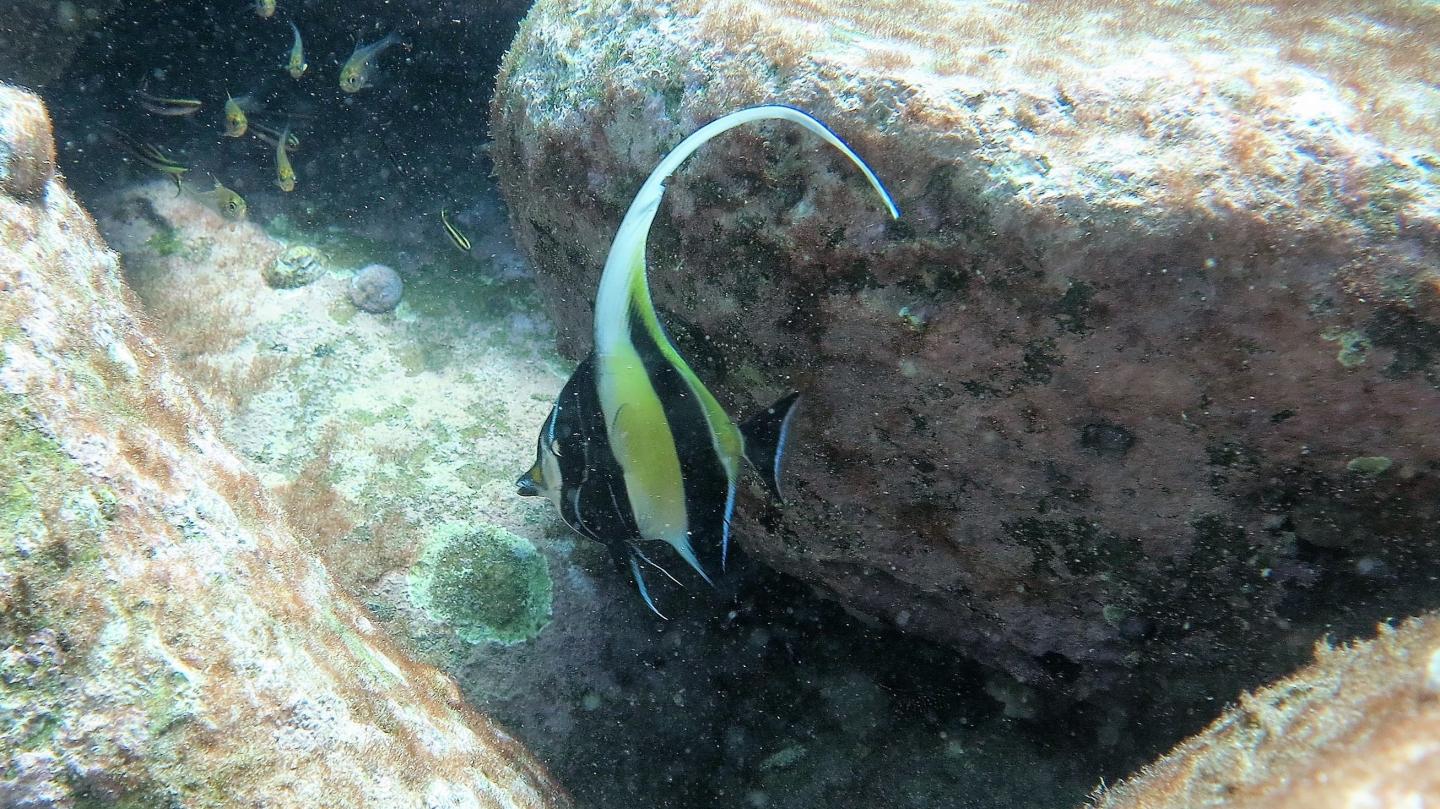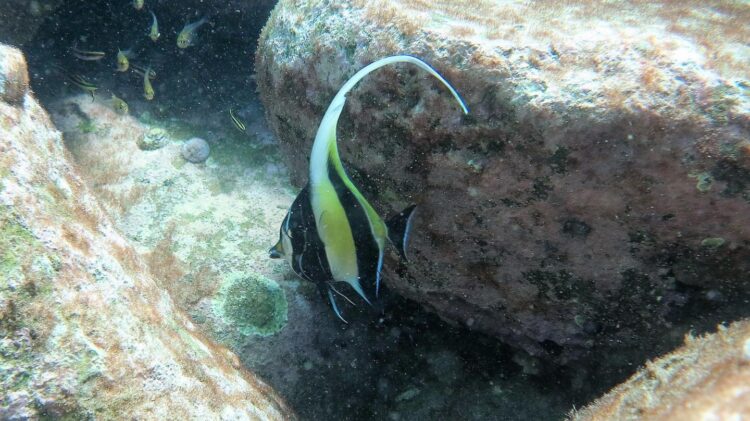
Credit: Image credit: Ericka Coni
Under increasing global warming, tropical fish are escaping warmer seas by extending their habitat ranges towards more temperate waters.
But a new study from the University of Adelaide, published in Nature Climate Change, shows that the ocean acidification predicted under continuing high CO2 emissions may make cooler, temperate waters less welcoming.
“Every summer hundreds of tropical fish species extend their range to cooler and temperate regions as the waters of their natural habitat become a little too warm for comfort,” says lead author Ericka Coni, PhD student in the University’s School of Biological Sciences. “For at least two decades, Australian temperate reefs have been receiving new guests from the tropics.
“As a result of warming, we also see warm-temperate long-spined sea urchins increasing in numbers in southeast Australia, where they overgraze kelp forests and turn them into deserts known as ‘urchin barrens’. Coral reef fishes that are expanding their ranges to temperate Australia prefer these barrens over the natural kelp habitats.
“But what we don’t know is how expected ocean acidification, in combination with this warming, will change the temperate habitat composition and consequently the rate of tropical species range-extension into cooler water ecosystems.”
The researchers hypothesised that these two divergent global change forces – warming and acidification – play opposing effects on the rate of tropicalisation of temperate waters.
“We know that as oceans warm they also acidify, because they absorb about a third of the CO2 emissions from fossil-fuel burning,” says Ericka’s PhD supervisor and project leader Professor Ivan Nagelkerken from the University’s Environment Institute and Southern Seas Ecology Laboratories.
“We also know that calcifying species like sea urchins are typically challenged by seawater with reduced pH levels resulting from elevated CO2.”
The research team, which also included Camilo Ferreira and Professor Sean Connell from the University of Adelaide, and Professor David Booth from the University of Technology Sydney, used two ‘natural laboratories’ to study ocean warming (tropicalisation hotspots on the south-eastern Australian coast) and ocean acidification predicted for the end of this century (natural CO2 vents off the coast of New Zealand) as an “early warning” system to assess the combined consequences of ocean acidification and ocean warming.
They found that sea urchin numbers were reduced by 87% under elevated CO2, leading to a reduction in number and size of urchin barrens. In their place turf algal cover increased which is less preferred by tropical species.
“Our study highlights that it is critical to study climate stressors together – we show that ocean acidification can mitigate some of the ecological effects of ocean warming,” says Professor Nagelkerken.
“For south-eastern Australia, and likely other temperate waters, this means that ocean acidification could slow down the tropicalisation of temperate ecosystems by coral reef fishes.
“But in the meantime, if left unabated, these tropical species could increase competition with local temperate species under climate change and reduce their populations.
“In the short-term we need to take steps to preserve kelp forests to help maintain the biodiversity and populations of temperate species and reduce the invasion of tropical species.”
###
Images:
Moorish idol – a coral reef species extending its ranges into temperate Australia under climate change.
Image credit: Ericka Coni
White Island off the coast of New Zealand, which acts as a natural laboratory to study the effects of ocean acidification on temperate reefs.
Image credit: Ericka Coni
Media Contact:
Professor Ivan Nagelkerken,
Southern Seas Ecology Laboratories and Environment Institute,
The University of Adelaide.
Mobile: +61(0)477 320 551,
[email protected]
Robyn Mills,
Senior Media and Communications Officer,
University of Adelaide.
Phone: +61 (0)8 8313 6341,
Mobile: +61 (0)410 689 084,
[email protected]
Media Contact
Professor Ivan Nagelkerken
[email protected]
Related Journal Article
http://dx.





